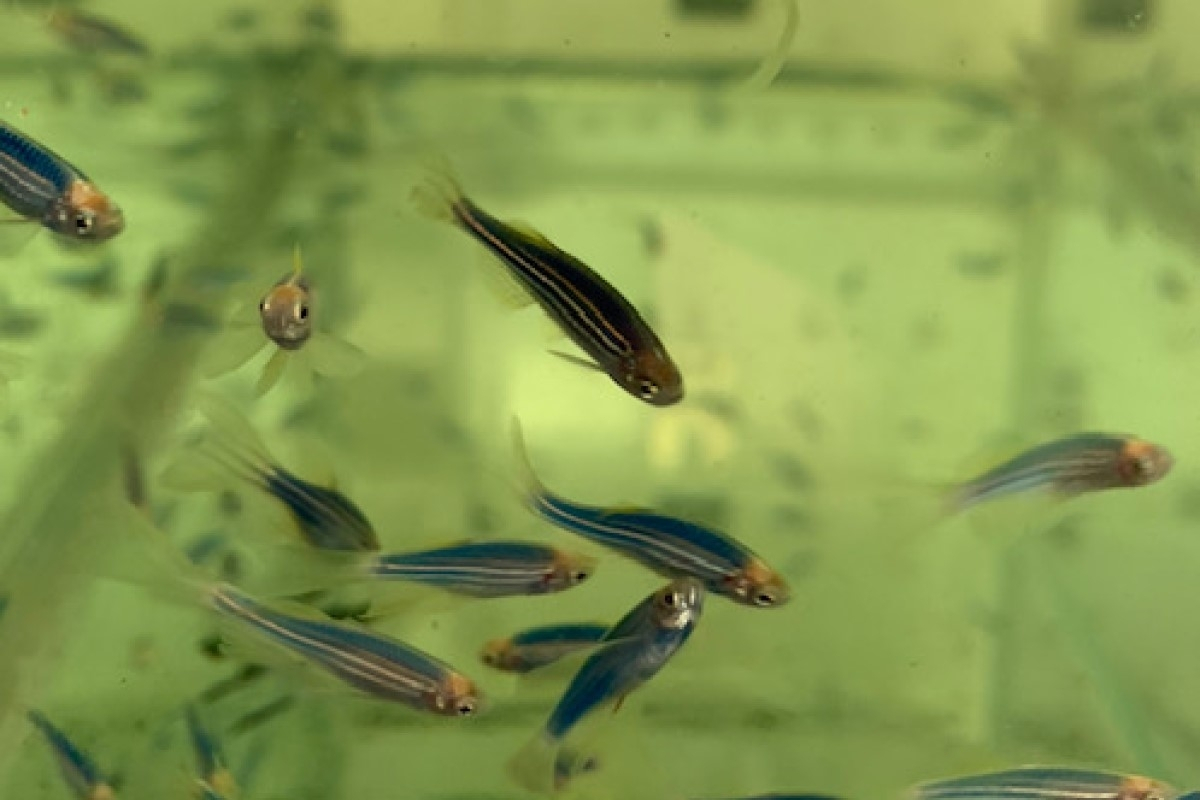St Petersburg University Scientists Use Artificial Intelligence to Predict Which Psychotropic Drugs Zebrafish Have Been Exposed To
Neuroscientists from St Petersburg University led by Professor Allan V. Kalueff, in collaboration with an international team of IT specialists, have become the first in the world to apply the artificial intelligence (AI) algorithms to phenotype zebrafish psychoactive drug responses. They managed to train AI to determine — by fish response — which psychotropic agents were used in the experiment.

The research findings are published in the journal Progress in Neuropsychopharmacology & Biological Psychiatry.
The zebrafish (Danio rerio) is a freshwater bony fish that is presently second (after mice) the most used model organism in biomedical research. The advantages for utilizing zebrafish as a model biological system are numerous, including low maintenance costs and high genetic and physiological similarity to humans. Zebrafish share 70% of genes with us. Furthermore, the simplicity of the zebrafish nervous system enables researchers to achieve more explicit and accurate results, as compared to studies with more complex organisms.
According to Professor Allan V Kalueff, the Principal Investigator of the study and Head of the Laboratory of Biological Psychiatry at the Institute of Translational Biomedicine at St Petersburg University, AI algorithms based on neural networks are gaining ground in biomedicine as a promising, reliable and efficient research tool. They enable an unbiased and objective analysis of biological data, thus contributing to the identification of new general patterns that may not be obvious at first sight or obtainable from the general data set.
Despite the fact that artificial intelligence is being increasingly used in neuroscience, the study by St Petersburg University scientists has been the first to apply the AI neural network-based algorithms to analyse zebrafish locomotor tracks (movements). The researchers compared data collected previously in a series of in vivo experiments with adult zebrafish exposed to neurotropic drugs and unexposed control groups.
In the study, zebrafish were exposed acutely to various psychotropic drugs, including nicotine; ethanol; caffeine; and others. Each of these drugs affects the central nervous system (CNS) of zebrafish and their locomotor patterns. The experimental data have already been reported by the scientists from St Petersburg University in research papers.
Differences in the locomotor activities of zebrafish under the influence of various CNS substances were used to train AI algorithms on the video data obtained during previous experiments.
The study utilised a Convolution Neural Network (CNN) model, specifically designed to work with visual data (images) and inspired by cortical visual information processing system in human and animal brains. It extracts simple image features, such as gradients or lines, and then combines them at the next layer to obtain a richer and more complex image representation (shape). Each CNN layer increases the complexity of the processed data, thus helping to extract non-trivial drug-specific patterns of animal locomotion. For example, exposure to ketamine evokes prominent circular behaviour of fish (typically near the water surface), while ethanol exerts dose-dependent biphasic effects with initial activation and later sedation.
The most challenging part of the study was to find the critical optimal AI training protocols and to confirm the validity of the research methods and the accuracy of the research findings.
Professor Allan V Kalueff, Doctor of Biology, Principal Investigator of the study and Head of the Laboratory of Biological Psychiatry at the Institute of Translational Biomedicine at St Petersburg University
‘In the end, it all worked out well! From a theoretical viewpoint, the study findings proved the applicability of our AI approach for analysis of behavioural effects of neuroactive drugs on zebrafish. From a practical view point, this gives us an ample opportunity to study new psychotropic pharmaceuticals,’ explained Professor Kalueff.
According to the scientists of this study, the functionality of AI applications may be improved further by refining and adjusting the neural network models. Moreover, its importance is likely to grow with the amount of experimental data becoming available for AI training. The authors intend to continue their research pursuing the translational approach to drug development. By improving the research methodology and AI-based drug testing tools, they will be able to further facilitate the search for novel drugs that can eventually be introduced into clinical practice.

